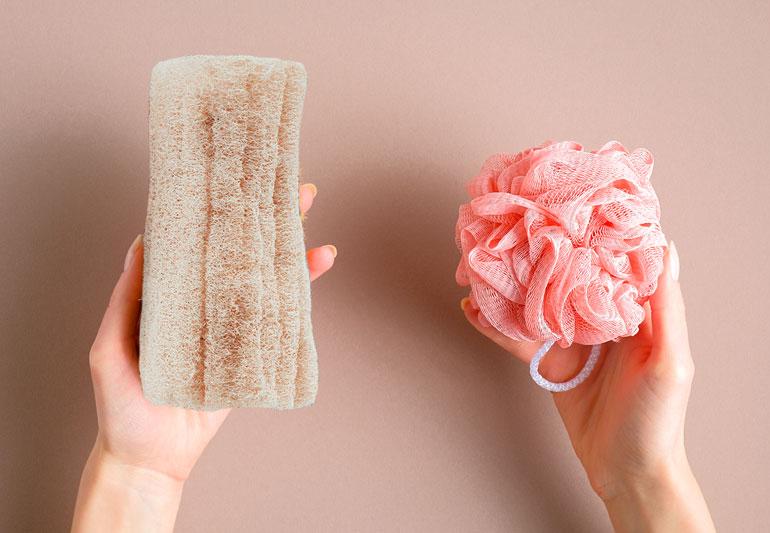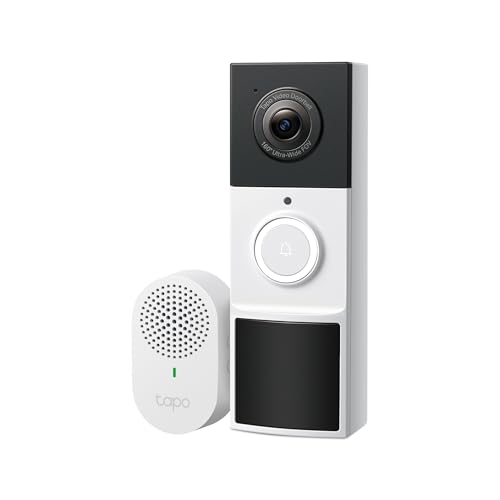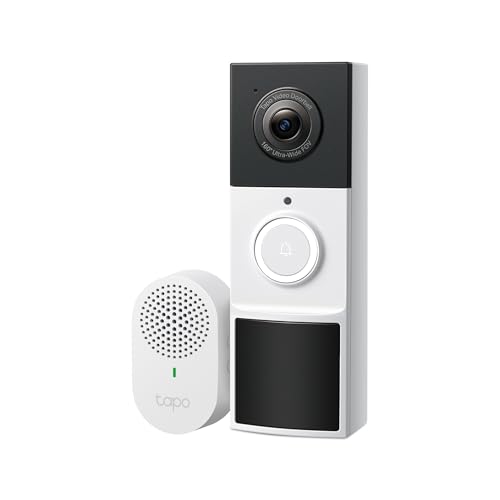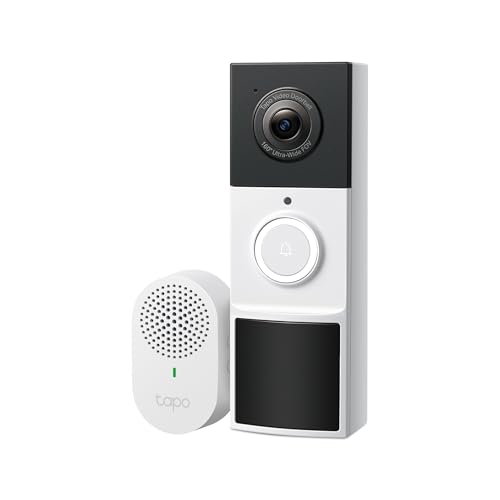Are you tired of your shower pouf leaving behind residue or not giving you that fresh, clean feeling? You’re not alone.
Many people wonder if there’s a better option that feels gentle on the skin while still doing a great job at cleansing. If you’ve ever asked yourself, “What should I use instead of a shower pouf? ” you’re in the right place.
You’ll discover simple, effective alternatives that can transform your shower routine and leave your skin feeling smoother and healthier. Keep reading to find out which option fits your needs best.

Credit: zerowastestore.com
Why Avoid Shower Poufs
Shower poufs might seem like a simple tool for your daily routine, but there are several reasons to reconsider using them. Understanding the downsides helps you make smarter choices for your skin, health, and the planet. Let’s take a closer look at why you might want to avoid shower poufs altogether.
Environmental Impact
Most shower poufs are made from synthetic materials like nylon or plastic, which don’t break down easily. When discarded, they contribute to microplastic pollution in oceans and landfills. You might be surprised to know that a single pouf can shed thousands of tiny plastic particles during use.
Choosing alternatives that are biodegradable or natural can reduce your environmental footprint. Have you ever thought about how your bathroom habits affect the planet? Small changes here can lead to bigger benefits outside your home.
Health Concerns
Shower poufs can trap moisture, creating a perfect environment for bacteria and mold to grow. Using one daily without proper cleaning increases your risk of skin irritation and infections. I once noticed redness and itchiness after switching to a pouf, which went away when I stopped using it.
Regularly replacing or sanitizing poufs is a hassle many overlook. Would you want to scrub your pouf every few days just to keep it safe? Alternatives like washcloths or silicone brushes dry faster and are easier to keep clean.
Durability Issues
Shower poufs tend to lose their shape and texture quickly. They can become flimsy or fall apart within a few weeks, leading to waste and the need for frequent replacements. This constant tossing out adds up to more plastic waste and extra money spent.
If you want a tool that lasts longer and performs better, consider options like natural loofahs or exfoliating gloves. These often provide a more consistent scrub without falling apart. Have you noticed how some shower poufs just don’t hold up no matter how careful you are?
Natural Loofah Sponges
Natural loofah sponges offer gentle exfoliation and help remove dead skin effectively. They dry quickly and resist bacteria better than synthetic poufs. Using them can make your shower routine more natural and eco-friendly.
If you’re exploring alternatives to synthetic shower poufs, natural loofah sponges offer an eco-friendly and skin-friendly option. These plant-based sponges are derived from the fibrous interior of the loofah gourd, providing a natural exfoliating experience that can enhance your shower routine. Not only are they biodegradable, but they also support a more sustainable lifestyle.Sourcing And Sustainability
Natural loofah sponges are sourced from loofah gourds, which are part of the cucumber family. These gourds are grown organically in many parts of the world, including Asia and Africa. By choosing loofah sponges, you support sustainable farming practices and reduce plastic waste in your bathroom.Benefits For Skin
Loofah sponges are excellent for exfoliating dead skin cells, leaving your skin feeling smooth and rejuvenated. They help unclog pores and can improve circulation, giving your skin a healthy glow. If you’ve noticed your skin feeling dull, a loofah can offer just the right amount of gentle abrasion to refresh it.Care And Maintenance
To keep your loofah sponge in top condition, rinse it thoroughly after each use and hang it to dry. Make sure it dries completely to prevent mold and bacteria growth. Replace your loofah every few weeks to maintain hygiene and effectiveness. Have you considered the impact of your shower routine on the environment? Switching to a natural loofah sponge not only benefits your skin but also contributes to a healthier planet. Is it time to make the switch?Organic Cotton Washcloths
Organic cotton washcloths offer a natural, skin-friendly alternative to shower poufs. They provide a simple way to cleanse and exfoliate your skin without harsh chemicals or synthetic materials. If you’re looking for something gentle yet effective, these washcloths could be exactly what you need.
Softness And Gentle Exfoliation
Organic cotton washcloths are incredibly soft, making them ideal for sensitive skin. They gently remove dead skin cells without causing irritation or redness. Using one feels like a light massage, helping your skin stay smooth and refreshed.
Have you ever noticed how a rough pouf can leave your skin feeling raw? Switching to a cotton washcloth can prevent that discomfort while still giving you a satisfying clean. It’s a small change that makes a big difference in your daily routine.
Biodegradable Qualities
Unlike synthetic poufs, organic cotton washcloths are biodegradable. This means they break down naturally without harming the environment. Choosing cotton helps reduce plastic waste, which is a huge plus if you’re aiming for a greener lifestyle.
Think about how many plastic poufs you’ve thrown away over the years. Replacing them with cotton washcloths can cut down on landfill contributions. Plus, organic cotton is grown without harmful pesticides, which is better for the earth and your skin.
Washing Tips
- Wash your organic cotton washcloth in warm water before first use to soften the fibers.
- Avoid fabric softeners as they can reduce absorbency and irritate your skin.
- Use mild detergent to keep the cotton gentle and long-lasting.
- Let the washcloth dry completely between uses to prevent bacteria build-up.
Taking care of your washcloth properly means it will stay soft and effective longer. Have you ever had a cloth that got rough or started smelling after a few uses? Proper washing can prevent this, making your switch from pouf more satisfying.
Bamboo Fiber Scrubbers
Bamboo fiber scrubbers are quickly becoming a favorite alternative to traditional shower poufs. Made from natural bamboo fibers, these scrubbers offer a gentle yet effective cleanse for your skin. They strike a perfect balance between exfoliation and softness, making your shower routine feel fresh and natural.
Eco-friendly Growth
Bamboo is one of the fastest-growing plants on Earth, which means it can be harvested without causing harm to the environment. Unlike synthetic materials, bamboo fibers break down naturally, reducing landfill waste. Choosing bamboo fiber scrubbers supports sustainable farming and lowers your carbon footprint.
Antimicrobial Properties
Bamboo contains natural antimicrobial agents, which help prevent the buildup of bacteria and odors on your scrubber. This means your scrubber stays cleaner longer, promoting better skin health. Have you noticed how synthetic poufs can start smelling even after a few uses? Bamboo fiber scrubbers avoid this problem.
Usage Tips
- Wet the scrubber thoroughly before use to soften the fibers.
- Apply your favorite soap or body wash directly on the scrubber for rich lather.
- Gently massage your skin in circular motions to remove dead skin cells.
- Rinse the scrubber well after each use and hang it in a dry, ventilated area.
- Replace the scrubber every few weeks to maintain hygiene and effectiveness.
Have you tried switching to bamboo fiber scrubbers yet? They might just be the change your shower routine needs.
Hemp Washcloths
Hemp washcloths offer a smart alternative to shower poufs. They combine durability, eco-friendliness, and gentle care for your skin. If you’ve ever struggled with poufs that tear apart or harbor bacteria, hemp washcloths might be the upgrade you need.
Strength And Longevity
Hemp fibers are naturally strong and get softer with every wash. Unlike traditional poufs that can fall apart after a few uses, a hemp washcloth can last for years without losing its texture.
Imagine buying one washcloth and using it for over a year without it fraying or breaking down. This durability means fewer replacements and less waste piling up in your bathroom.
Environmental Benefits
Hemp grows quickly and requires fewer pesticides and water compared to cotton. Choosing hemp washcloths reduces your environmental footprint significantly.
Plus, hemp is biodegradable, so when you do decide to replace your cloth, it won’t sit in a landfill for decades. Wouldn’t you prefer a product that supports a cleaner planet every time you shower?
Skin Compatibility
Hemp fibers are naturally antimicrobial and hypoallergenic, making them perfect for sensitive skin. They provide a gentle exfoliation without irritation or redness.
If you’ve experienced itching or dryness from synthetic poufs, hemp washcloths can soothe and protect your skin instead of aggravating it. How often do you consider the impact of your shower tools on your skin’s health?

Credit: zerowastestore.com
Reusable Silicone Scrubbers
Reusable silicone scrubbers offer a smart alternative to traditional shower poufs. They provide gentle exfoliation while being easy to clean and last much longer. If you’ve struggled with moldy, smelly poufs, these scrubbers might change your shower routine for good.
Durability And Hygiene
Silicone scrubbers are incredibly durable. Unlike poufs that tear or crumble after a few weeks, silicone stays intact for months or even years. This means you don’t have to replace them often, saving money and effort.
Hygiene is another big plus. Silicone doesn’t trap water or soap scum the way sponges or poufs do. It dries quickly and resists bacteria growth, reducing the risk of skin irritation or infections.
Eco Impact Compared To Plastic
While silicone is a type of plastic, it’s more eco-friendly than disposable poufs. Reusable scrubbers reduce waste because you use one for a long time instead of throwing away many single-use items.
Also, silicone scrubbers can often be recycled at specialized facilities. This gives you a chance to lower your environmental footprint without sacrificing cleanliness or comfort.
Cleaning Instructions
Cleaning silicone scrubbers is simple and quick. You can rinse them thoroughly with hot water after every use to remove soap residue.
- For deeper cleaning, soak the scrubber in a mixture of warm water and vinegar or mild soap once a week.
- Occasionally, boiling the scrubber for a few minutes can sterilize it completely.
- Make sure to air dry it fully between uses to keep it fresh and ready.
Have you tried switching to a reusable silicone scrubber? Once you notice how fresh and clean it feels, you might never go back to a traditional shower pouf again.
Diy Alternatives
Choosing a DIY alternative to a shower pouf can be a fun and rewarding way to personalize your skincare routine. It lets you control the materials you use and often costs less while being environmentally friendly. Plus, creating your own bath tools can add a special touch to your daily ritual.
Making Your Own Washcloth
A simple cotton washcloth can replace a shower pouf easily. You can buy soft, absorbent cloths or make one by cutting a piece from an old towel. Washcloths are gentle on the skin and easy to clean, which means fewer bacteria compared to synthetic poufs.
Try folding the cloth several times to add extra scrubbing power or use it damp for a gentler cleanse. Have you ever noticed how much control you have when using a washcloth? You can target specific areas without over-exfoliating.
Upcycling Old Fabrics
Look around your home for fabric scraps or worn-out clothes that can be repurposed. Denim, flannel, or even old t-shirts can be cut into strips or squares to create a textured scrubber. This approach saves money and reduces waste.
Stitch or tie the pieces together to form a small pouch or a flat scrubber. You might find that upcycled fabrics offer a unique texture that works better for your skin than store-bought options. What pieces of fabric could you give a new life to in your bathroom?
Creative Exfoliation Ideas
Exfoliation doesn’t always require a pouf or cloth. Natural items like loofah slices, sea sponges, or even a soft-bristled brush can provide excellent cleansing. These options often last longer and dry faster, which helps keep them clean.
Try using a handful of coarse salt or sugar mixed with a bit of olive oil as a scrub for a tactile experience. Changing your exfoliation tool can refresh your routine and reveal what your skin truly enjoys. Are you ready to experiment with textures that your skin has never felt before?
Choosing The Right Alternative
Choosing the right alternative to a shower pouf matters for skin health and comfort. Different options suit different skin types, lifestyles, and budgets. Understanding your needs helps pick a product that cleanses well without causing irritation or waste.
Skin Type Considerations
Skin type affects how you cleanse and what tools work best. Sensitive skin needs soft, gentle materials to avoid redness or dryness. Rough or exfoliating items might cause irritation.
Oily or combination skin benefits from deeper cleaning. Tools that can remove excess oil help keep pores clear. Dry skin requires moisturizing cleansers and mild scrubbing to prevent damage.
- Soft washcloths for sensitive or dry skin
- Natural sponges for balanced exfoliation
- Silicone scrubbers for oily or acne-prone skin
Lifestyle And Convenience
Choose a product that fits your daily routine and shower habits. Busy mornings call for quick, easy-to-use options that dry fast and stay clean. Some materials resist bacteria better, reducing the need for frequent replacement.
Travelers prefer compact, lightweight alternatives that pack easily. Those who enjoy spa-like routines might select tools with exfoliating and massaging features.
- Silicone scrubbers for easy cleaning and fast drying
- Washcloths that can double as face and body tools
- Natural sponges for a relaxing, gentle experience
Budget Factors
Set a budget that matches how often you replace shower tools. Some alternatives cost more upfront but last longer. Others are cheap but need frequent replacement.
Consider long-term value and hygiene. Reusable options often save money over time. Disposable or natural items might suit occasional use or sensitive skin better.
| Alternative | Cost | Durability | Replacement Frequency |
|---|---|---|---|
| Washcloth | Low | Moderate | Every few weeks |
| Natural Sponge | Medium | Low to moderate | Monthly |
| Silicone Scrubber | Medium to high | High | Every few months |

Credit: www.hercampus.com
Frequently Asked Questions
What Are The Best Alternatives To A Shower Pouf?
Natural loofahs, silicone scrubbers, and washcloths are great alternatives. They exfoliate gently and last longer. These options reduce bacteria buildup compared to poufs. Choose based on your skin type and preference for eco-friendliness.
Is A Washcloth Better Than A Shower Pouf?
Yes, washcloths are easier to clean and dry faster. They are less likely to harbor bacteria. Washcloths provide gentle exfoliation and can be reused multiple times. They are an affordable and hygienic option for daily use.
Can I Use A Natural Loofah Instead Of A Pouf?
Natural loofahs are excellent pouf replacements. They offer firm exfoliation and improve skin texture. Loofahs are biodegradable and eco-friendly. However, they need to be dried properly to avoid mold and bacteria growth.
Are Silicone Scrubbers Healthier Than Shower Poufs?
Silicone scrubbers are more hygienic because they dry quickly and resist bacteria. They are gentle on skin and easy to clean. Silicone scrubbers also last longer than traditional poufs, making them a practical and safe choice.
Conclusion
Choosing the right shower tool matters for your skin’s health. Natural sponges, washcloths, or silicone scrubbers all work well. They clean gently and last longer than poufs. Plus, they dry faster and resist bacteria growth. Try different options to find what suits you best.
Your skin will feel fresh and soft every time. Simple changes make a big difference in daily care. Keep your shower routine clean and safe with smart choices.





